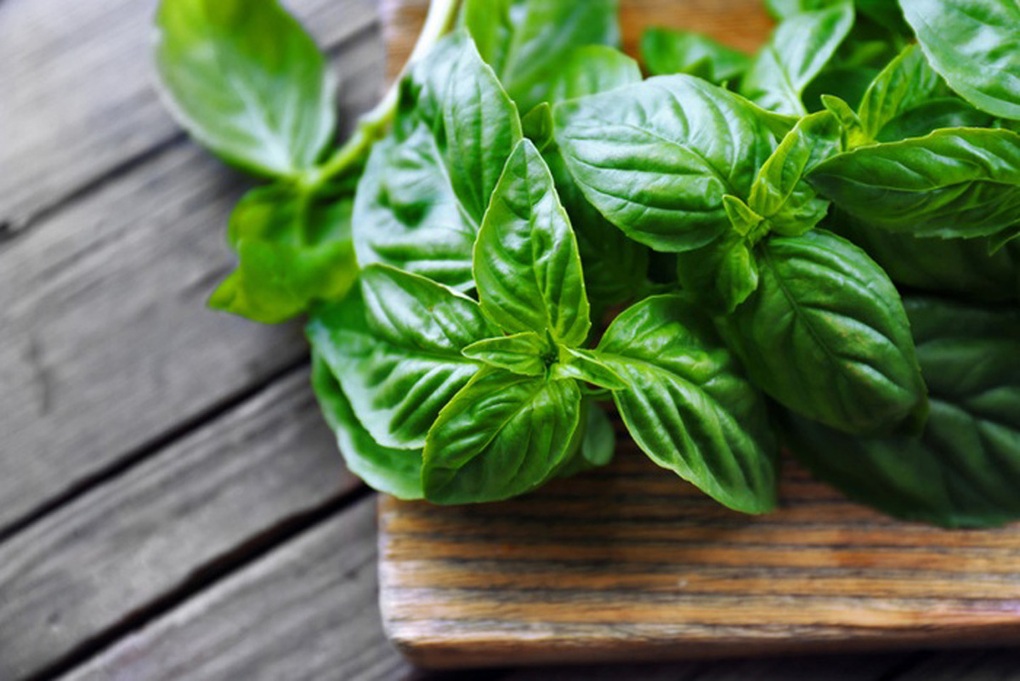Basil, scientifically known as Ocimum basilicum, is a popular herb worldwide, especially in tropical regions. For centuries, it has been used in traditional medicine to treat various health concerns. Modern research further validates the health benefits of this potent herb, highlighting its significant contribution to human well-being.
The Amazing Benefits of Basil
Basil is not just a flavorful herb that enhances culinary dishes; it’s also a treasure trove of health benefits. Here are some key advantages of incorporating basil into your diet:
1. Supporting Kidney Stone Dissolution
Basil is shown to aid in the breakdown of kidney stones, a common health problem. Studies suggest that basil extract can help reduce uric acid levels in the blood, a major contributor to kidney stone formation. Moreover, basil possesses natural diuretic properties, boosting the kidneys’ filtration and excretion capabilities. Regularly consuming basil juice mixed with honey can help dissolve small stones and prevent recurrence.
 Basil, a culinary herb, aids in preventing kidney stones and supports cardiovascular health.
Basil, a culinary herb, aids in preventing kidney stones and supports cardiovascular health.
2. Protecting the Heart and Cardiovascular System
Basil contains eugenol, a powerful anti-inflammatory compound that helps lower cholesterol. Research indicates that eugenol maintains stable blood pressure and prevents the formation of arterial plaques, thus reducing the risk of cardiovascular diseases. Chewing a few basil leaves on an empty stomach each morning is a simple and effective way to support heart health.
3. Stabilizing Blood Sugar and Preventing Diabetes
Basil contains bioactive compounds such as methyl eugenol, caryophyllene, and eugenol, which positively impact blood sugar control. These compounds enhance insulin sensitivity, providing support for individuals with type 2 diabetes. However, remember that basil is a supplemental support and should be combined with a healthy diet and lifestyle.
4. Reducing Inflammation and Pain, Especially in Arthritis
Basil inhibits cyclooxygenase (COX) enzymes, similar to nonsteroidal anti-inflammatory drugs (NSAIDs). This helps alleviate pain associated with arthritis or menstrual cramps. Brewing basil tea and consuming it during painful episodes can provide relief.
5. Boosting Immunity and Providing Powerful Antioxidant Protection
Basil is rich in vitamins A and C, flavonoids, and other antioxidants. These neutralize free radicals, minimizing the damage of aging and preventing various chronic diseases. Basil also enhances the production of white blood cells and antibodies, strengthening the body’s immune response.
6. Enhancing Skin and Hair Health, and Supporting Smoking Cessation
Basil’s antibacterial and cooling properties help reduce acne, brighten skin, and prevent hair loss. Using basil as a mask or shampoo can produce positive results. Regular chewing of basil leaves can potentially reduce cravings and soothe the nervous system, supporting individuals trying to quit smoking.
Conclusion
Basil, the “king of herbs,” offers a wealth of health benefits. However, for optimal results, use basil in moderation and combine it with a healthy lifestyle.
References
- International Journal of Current Pharmaceutical Research
- Journal of Clinical Biochemistry and Nutrition
- Evidence-Based Complementary and Alternative Medicine
- https://dantri.com.vn/suc-khoe/vua-rau-thom-giup-phong-soi-than-rat-tot-cho-tim-20250326065814152.htm (Original Article Source)



